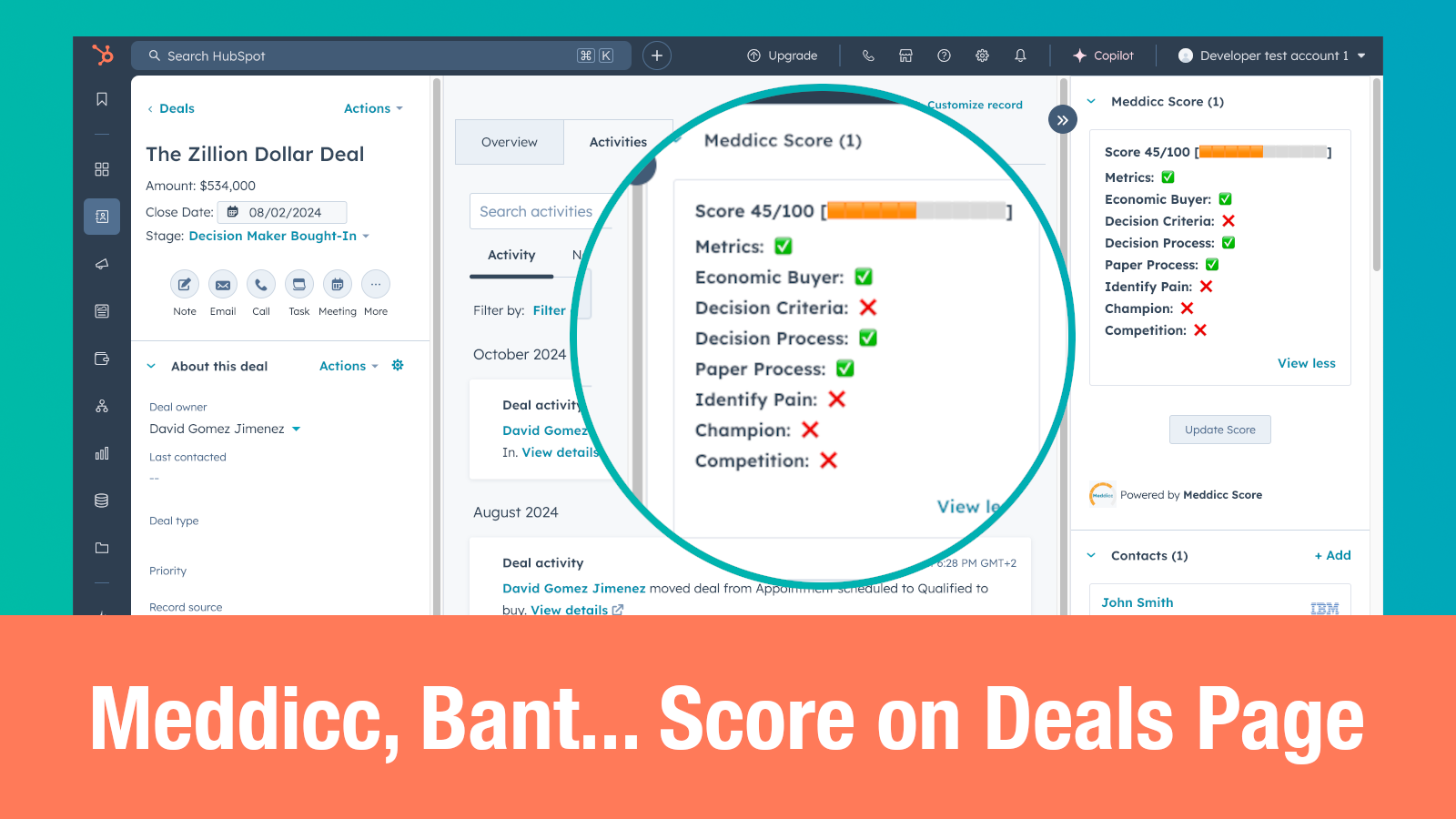SPICED Framework: The Modern Sales Qualification Tool Every Seller Needs
Sales teams in today’s rapidly evolving B2B landscape are under constant pressure to hit targets and close quality deals. A solid sales qualification process separates high-value opportunities from those less likely to convert. Enter the SPICED framework, a modern sales qualification tool designed to align with contemporary selling strategies and buyer journeys. In this post, we’ll dive deep into the SPICED framework, why it matters in modern sales, and how you can implement it to transform your sales pipeline.
What is the SPICED Framework?
The SPICED framework is an acronym that stands for:
- Situation: Understanding the customer’s current state
- Pain: Identifying explicit challenges or problems
- Impact: Determining the business results of the pain
- Critical Event: Recognizing timelines or must-hit dates
- Decision: Understanding the process and the people involved in deciding
This sales qualification method brings structure and clarity to your discovery conversations, ensuring that sales reps gather the key information necessary to move deals forward efficiently.
Why Use the SPICED Framework in Modern Sales?
Traditional qualification models like BANT (Budget, Authority, Need, Timeline) often fall short in complex sales environments. The SPICED framework adapts to the demands of modern sales processes where deals involve multiple stakeholders and require personalized engagement.
Benefits of SPICED:
- Customer-Centric: Focuses on the client’s challenges, not just budget or authority.
- Aligns with Consultative Selling: Encourages deeper, more meaningful conversations.
- Increases Win Rates: Quickly identifies high-quality leads and disqualifies weaker ones.
- Promotes Consistency: Provides a repeatable process for your entire sales team.
Breaking Down the SPICED Framework
Let’s explore how each component of the SPICED framework strengthens your sales qualification process:
1. Situation
Start by uncovering your prospect’s current environment. Ask open-ended questions to learn about their workflows, team dynamics, and existing technologies. This sets the stage for a tailored conversation.
Example Question:
“What tools or processes are you currently using to manage this area of your business?”
2. Pain
Identify specific problems or pain points your prospect is experiencing. Understanding the ‘pain’ positions your product as a potential solution.
Example Question:
“What challenges are you facing that prompted you to explore solutions?”
3. Impact
Dig deeper to understand how these pain points affect the business, including lost revenue, productivity setbacks, or missed opportunities. Assessing the impact quantifies the value of solving the problem.
Example Question:
“If this challenge persists, what effect could it have on your goals this quarter?”
4. Critical Event
Uncover any pressing deadlines or events that make the prospect’s problem urgent (e.g., a contract renewal, product launch, compliance requirement). This defines timeline and urgency.
Example Question:
“Is there a specific event or date by which you need this resolved?”
5. Decision
Clarify how purchasing decisions are made within the prospect’s organization. Learn who the key stakeholders are and outline the buying process to avoid surprises.
Example Question:
“Can you walk me through your decision-making process for new solutions?”
Implementing SPICED in Your Sales Process
Here are actionable steps to integrate the SPICED framework into your modern sales strategy:
- Train Your Team: Conduct SPICED workshops and embed the framework into call scripts and CRM fields.
- Customize Questions: Tailor SPICED discovery questions for your industry and solution.
- Use Technology: Leverage CRM tools to track SPICED criteria and automate reminders for next steps.
- Review & Refine: Analyze win/loss data to consistently improve question techniques.
Conclusion
The SPICED framework is fast becoming the gold standard for sales qualification in modern sales teams. By focusing on Situation, Pain, Impact, Critical Events, and Decision processes, you create a customer-first experience that increases pipeline quality and accelerates deal cycles. If you’re ready to elevate your sales qualification, SPICED is the framework you need today.
Want more modern sales tips? Subscribe for updates and boost your sales qualification process with the latest frameworks and strategies!




